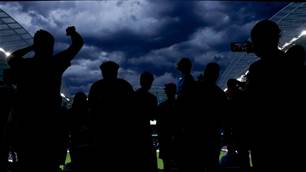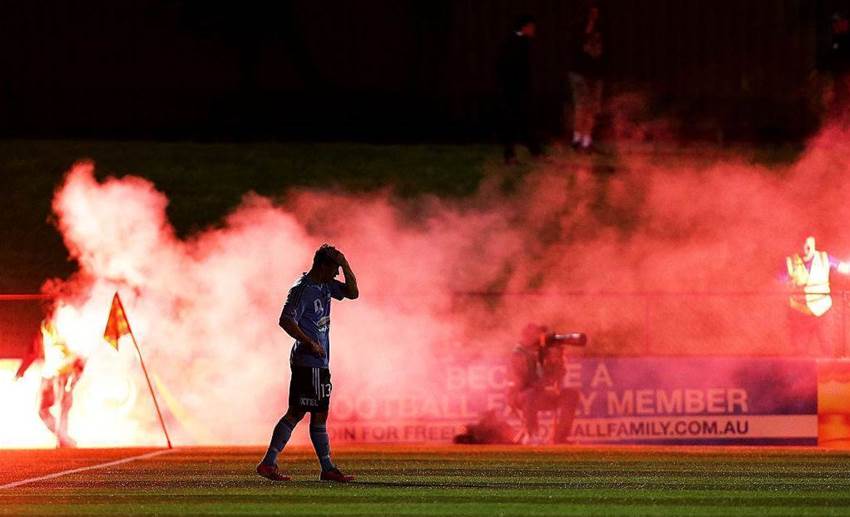Alex Gersbach and Luke Wilkshire never played together.
In 2014, while 17 year old Gersbach was just igniting his European aspirations at Sydney FC, 36 year old Wilkshire's decorated spell on the continent was drawing to a close.
Wilkshire had played nearly 400 games across Europe, from the quiet county boroughs of Teeside to the devastatingly war-torn region of Chechnya. When Gersbach celebrated his first birthday, Wilkshire had already joined Premier League side Middlesborough.
As history had it, Australia's most-renowned fullback returned to the Sky Blues less than a year after one of our most exciting fullback prospects had departed. Thus, the Socceroo legend's wealth of experience narrowly slipped through the cracks while Gersbach was stuck on a bench in Trondheim.
Wilkshire had left Australia at 17, made his Premier League debut by 22, made the second round of the World Cup by 25 and spent the comfort years of his mid-30s tearing shreds from opposing attackers in a region where fans bring machine guns to football matches.
Meanwhile Gersbach's career, encompassing the same lofty potential, is traversing a very different path. Still sweating bench positions and on the verge of losing top tier status once again, in hindsight, Gersbach could maybe have used a little of Wilkshire's advice right now...
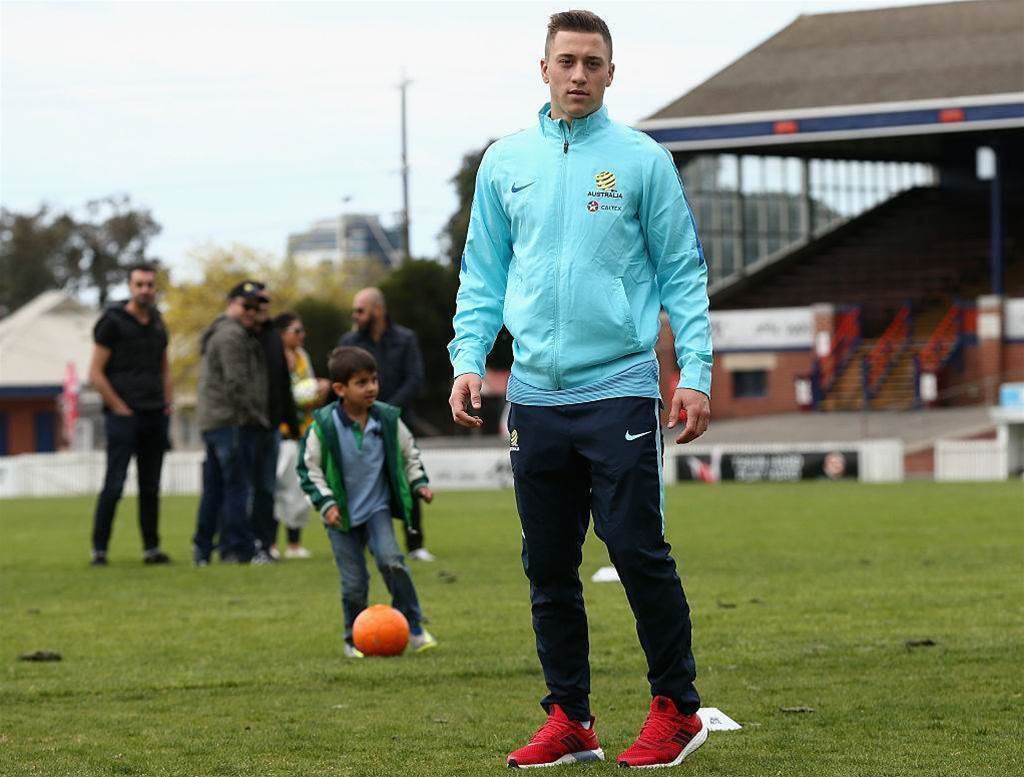
The now 21-year-old blazed through the ranks at Sydney to become a schoolboy Sky Blues hero soon after his 17th birthday.
Gersbach's blistering pace and dynamism was complemented by an air of confidence - he looked equally comfortable crowding a perplexed winger out for a throw-in or bamboozling an opposing fullback to swing in a cross.
He quickly cemented himself as the A-League's wunderkind of the 2015/16 season, but there was no arrogance or shift in Gersbach's demeanour. He always seemed subtle and softly-spoken: traits he hardly showed on the pitch.
In this way he was more than a little resemblant to his Socceroos predecessor and Sydney successor. But the moment Gersbach was lured from the sunny shores of Sydney to the biting fjords of Norway, things slowly began to sour.
While Norway - boasting a population little more than Sydney - has battled hard to instil its football reputation in Europe, the former world number two have slowly declined from their deceiving peak across the last two decades.
Following the sliding fortunes of their national team is Scandinavia's most dominant club, the pride of Trondheim, Rosenborg BK.
The 26-time Norwegian champions have faced a steady decline since their turn of the millennium golden-era, when the side won 12 consecutive league titles, became a force to be reckoned with in the Champions League and commanded expansive transfer fees for the creme de la creme of Scandinavian talent.
Just like being a young Aussie in Europe ain't what it used to be, so too is the journey for Europe's old guard of second-string giants. While Rosenborg survived a lean spell to return to the pinnacle of Norwegian domesticity in 2015, their European glory days are far behind them.
The time of sweeping blonde locks and struck-through vowels in the Champions League is fading, acquiescing to the rise of Southern and Eastern Europe. While Bulgaria, Azerbaijan, Kazakhstan and Cyprus have all begun to make an unlikely European mark, Rosenborg haven't qualified for UEFA's showpiece for the last 12 years.
As part of its renewed development focus, Gersbach joined the club for a $500,000 fee in 2016. But there are few bigger shocks to the system than going to bed one week a rising star at the foot of the world, and waking up the next morning an unknown in an icy northern realm.
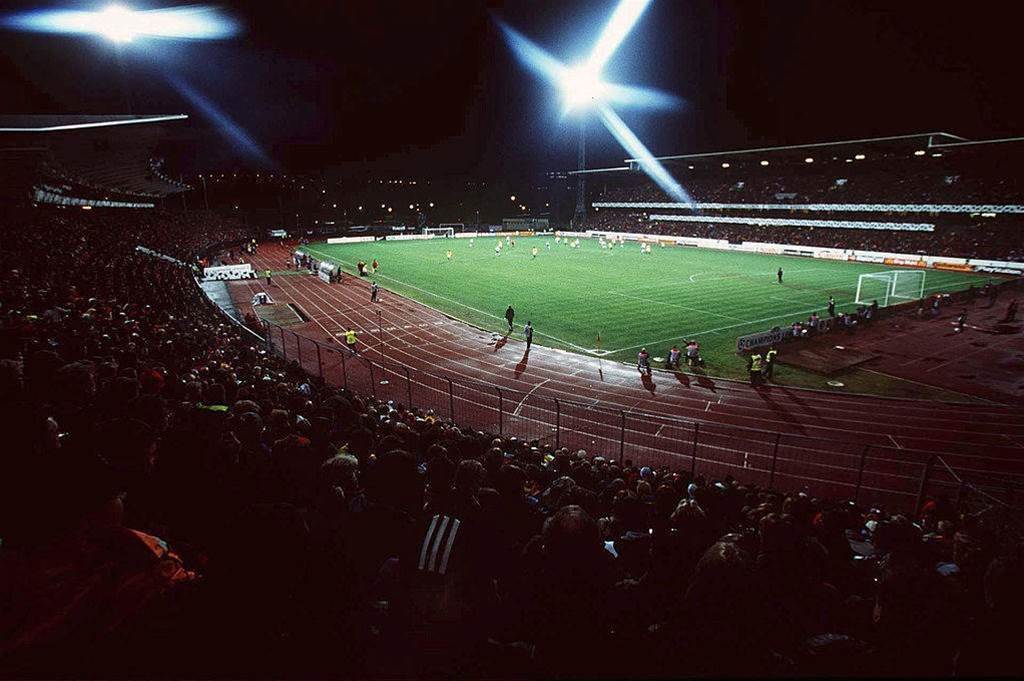
From 18 hours a day of darkness to 21 hours a day of sunlight, Norway itself is a land of jarring dichotomy. But while the teenager relished the Norwegian culture, he told the Player's Voice he was hit hard by losing first-team football.
"It feels like time is standing still for me right now," a despondent Gersbach wrote before the World Cup.
"I don’t know if I’ll still be playing for Rosenborg next season and I don’t know who the next Socceroos coach is going to be – the guy I’m going to have to impress most in 2018.
"I’m obviously not the only player sweating on finding out who’s going to replace Ange Postecoglou, but some of the others can be pretty sure they’ll be in the squad for the World Cup regardless.
"Me? I’m probably a bit closer to borderline. I was in and out of the squad during the qualification campaign and a lot of the times I was in the squad, I sat on the bench and didn’t play. So there are no guarantees.
“I’d started to feel like I was really a part of it, but then I went back to Norway and had that barren period there and got left out for the Syrian games. That was hard to take, but you’ve got to accept those things and just try harder.
“It’s inevitable you’re going to experience some turbulence from time to time as a professional footballer. It can be smooth sailing and next, it’s like being on a roller-coaster."
For a club Gersbach describes as "serial winners", the branding and financial ramifications of losing their European exposure created a tense atmosphere at Rosenborg.
To make matters worse, the Norwegians weren’t hedging their development bets on a young bloke from Auburn. The heavyweights had their pick of the country’s youth and were brimming with young Norsk talent fighting for Gersbach’s place.
With little game-time and a position at the World Cup up for grabs, Gersbach left Rosenborg on a loan deal to Ligue 2’s RC Lens. The Hauts-de-France region was a welcome shift for the Australian, but 12 appearances in a relegation-threatened second division club did little to endear him to Bert van Marwijk.
Gersbach fought hard at Lens. He earned a starting place in their squad and played a leading role in the club’s unlikely run to the quarterfinals of the Coupe de France. He deserved a place in van Marwijk’s preliminary Australian squad and received it.
But the Dutch coach had no interest in youth development, nor did he value pacey attacking intent over an experienced defensive hand. Van Marwijk was reeling from a bitter break with Saudi Arabia and looking to stick it to the Saudis, while boosting his own flatlining reputation, through short-term success with their Asian rivals.
The Australian media, likewise, tended to overlook Gersbach’s mazy French run. Instead, in what must have felt like an unbelievable shift, many began looking to his Sydney replacement, then 37-year-old Wilkshire, who had led Sydney to a dominant A-League Premiership.
Ultimately neither made the World Cup squad. While Wilkshire took the decision with expected grace, happily pointing out his age to the enquiring media, the decision was tougher for Gersbach.
He’d made his debut at just 19 under Ange Postecoglou and earned a consistent place in the set-up. While he was on a left-side packed with options and still too young to be a starter, Gersbach had outperformed experienced challengers like Brad Smith and developed a knack for providing assists in the few chances he’d been given – as he put it, he felt “right there”.
But after Postecoglou quit and Gersbach’s previous gaffer, Graham Arnold, was put on hold to replace him, the Aussie was left high and dry in Europe – clubless, nationless and watching his incredibly lofty potential slowly slip away.
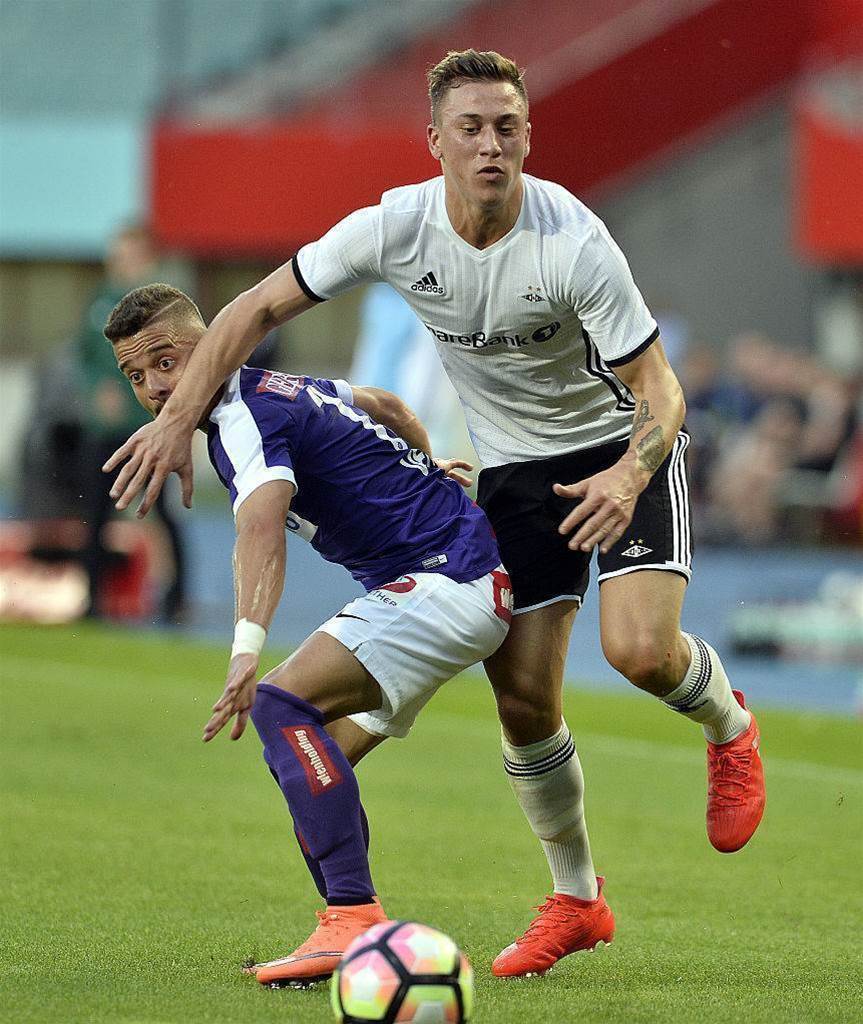
“Winning trophies, you learn to be a serial winner and then there’s the tough times for myself," Gersbach told socceroos.com.au a few months later, in the lead up to the 2019 Asian Cup.
"Not playing sometimes, the last year’s been tough being out of the team at Rosenborg and going on loan to France. It's not just the good things but the bad things as well and you learn to deal with the bad things. You’ve got to be strong.
“When I’m over in Norway I don’t have the support network I would have here with my family and friends so you’ve just got to learn to deal with it.
"This year I haven’t tried to think about it too much, I’ve gone into training feeling positive even if I’m not playing, just try and be happy and put a smile on my face.”
While Gersbach had earned an admirable 19 league appearances in his debut season at Rosenborg, his form and playing time had drastically diminished by the end.
In his final Eliteserien campaign two years later, in what should have been the prodigy's European breakthrough, he only appeared three times.
But when Arnold eventually took over the Socceroos coaching role before the Asian Cup, Gersbach must have felt a tinge of hope. He had begun his career under Arnie and the coach famed for his reliance on experienced heads had been eager to not only build Gersbach into a star role for the Sky Blues, but also - as he did for every member of his squad - build the youngster’s confidence to stratospheric heights.
Such is the Arnold mantra: footballers are drilled to think positively in all situations, with criticism outside of the changeroom virtually unheard of.
It’s certainly an effective strategy for the A-League, but whether it prepares young men for the unknown hardship of a fledgling European career is less certain.
By the time Arnold had selected his first Socceroos camp, Gersbach had found a permanent home, this time in the quaint riverside city of Breda in the Netherlands. On paper it seemed a terrific move: Breda were a lower-table side but had finished reasonably comfortably the previous season.
Like all Eredivisie sides, they were in the player development business, but unlike Rosenborg, Breda didn’t have their pick of the nation’s talent and were routinely forced to look elsewhere.
They also lacked the overhanging legacy of a club fighting for European relevance – Breda were undergoing a resurgence after years of financial strife and had consolidated firmly after promotion the previous season.
Not that there wasn’t enough competition to restore the Aussie’s Socceroos hopes.
Gersbach fought off the direct competition of former Manchester City youth Greg Leigh, a 24-year-old England youth-international with bagfuls of EFL experience.
Then there were the slew of mammoth-loanees, with the recently promoted club taking full advantage of the Eredivisie's growing reputation as a loan-hub for large English clubs.
But by the time Gersbach arrived Breda were languishing in seventeenth position. The Aussie walked straight into a starting position under the nervous leadership of former club stalwart Ruud Brood and went on to play every match bar one until the Asian Cup.
It was therefore no surprise when Arnold chose his known quantity in a supporting role for the Asian Cup. But while Gersbach won the nod in Arnold’s first Socceroos match, notching seven minutes in a rout of Kuwait, he wouldn’t play again throughout the entire Asian tournament.
Despite a series of lacklustre performances, in which Australia’s inability to attract any fluency in attack drew widespread criticism, Arnold played Aziz Behich in the left-back position for every single minute of the entire tournament.
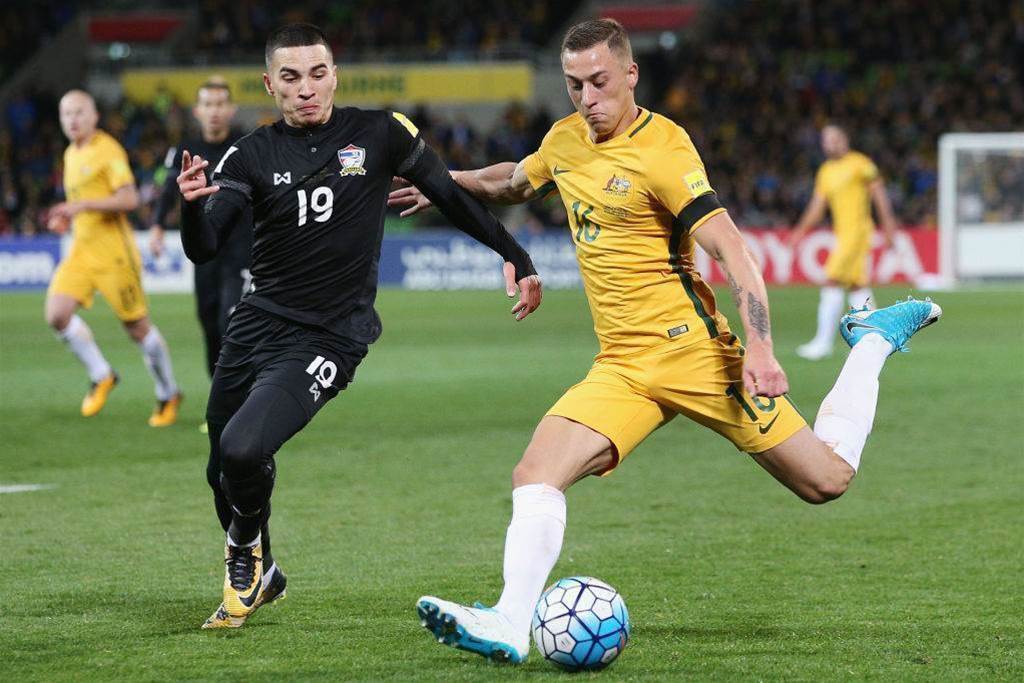
Gersbach, who could thank Arnold for his first opportunity in professional football and had previously impressed the Australian coach so greatly, could not even earn a brief substitute cameo in Asia’s showpiece.
To be fair, he was one of a number who Arnold had overlooked in favour of an underperforming starting XI.
It showed incredible resilience and desire for Gersbach to slot so effortlessly into a relegation-stricken Eredivisie club after missing the World Cup and the turmoils of the past two campaigns.
To be once again so close, yet so far from a return to the Socceroos fold could have been devastating. Gersbach now returns to an Eredivisie club one day away from relegation, stone-dead last in an 18-team league, five points adrift with two matches remaining.
He was rushed back into the fold for a 90-minute performance in a 4-0 thrashing from Feyenoord and, due to a seemingly wasted month sitting on the sidelines in the United Arab Emirates, has barely had an opportunity to impress a European scout.
Should he drop to Eerste Divisie, it's hugely unlikely he could earn a recall back into the Socceroos under a coach that seems incomprehensively distant. But the other option seems stark – a fourth European move in three years, another uncertain position and another season in flux.
At least he has the experience for it.
"I’ve just got to make sure I get this next part of my career right," he said back in 2017, "because there’s so much riding on it."
While some things change, some things stay the same.
But as Gersbach looks towards the next chapter of his career, which will make or break the potential he strutted so confidently at the beginning, he can perhaps look to Wilkshire with a slightly greater context.
Nearing the very end of his career, after a series of phenomenal accomplishments, Wilkshire was also ending a spell in the Eredivisie. He could have commanded lucrative opportunities to return home, likewise across Asia.
But rather than rest on his laurels and succumb to an easy retirement, Wilkshire snatched at the hardest challenge he could find - a move to Terek Grozny is the contested Russian region of Chechnya, a city the United Nations once branded as 'the most destroyed in the world'.
Nothing comes easy to Australian footballers. It’s the perseverance that counts.
“If you told me five years ago I could've achieved what I've done, I would've thought it wasn't even possible,” Wilkshire once told FTBL.
“But I always dreamed of it and believed I could do it…at times you don't know, in football, you need a break and maybe that one break, you take your chances.
“But it didn't all just land on a plate, it takes time.”
Related Articles
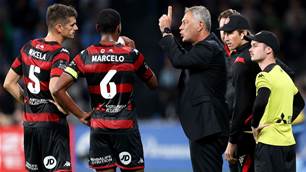
Six in the mix: Wanderers' short-list includes Arnie's Dutch pick
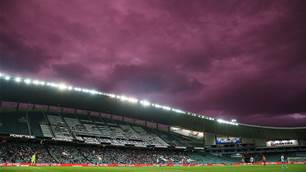
Robertson still committed to Socceroos: Arnold
